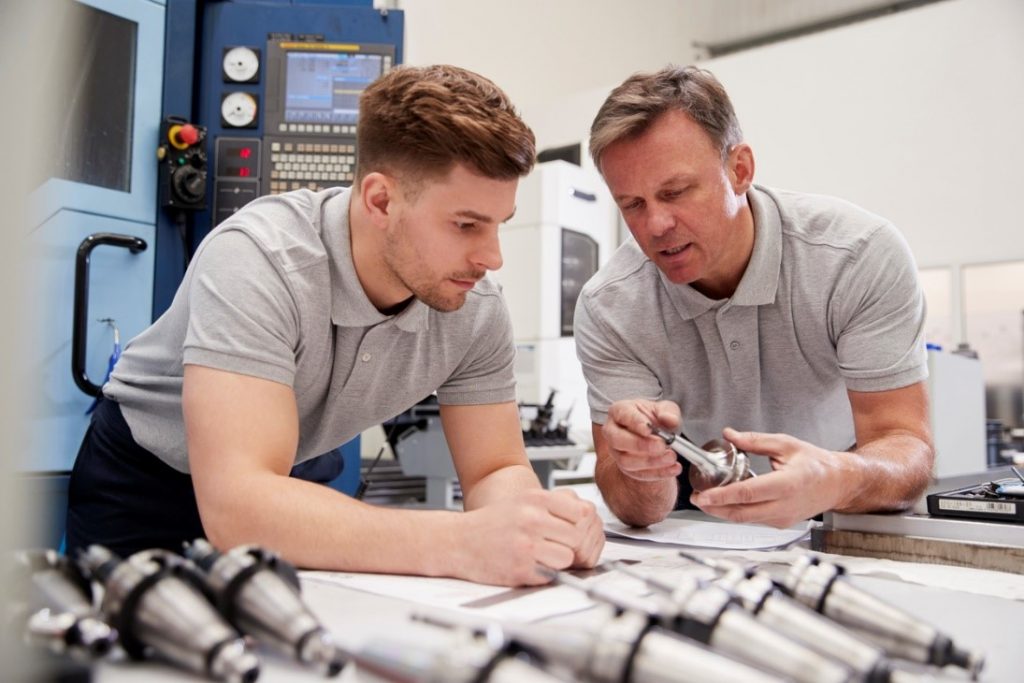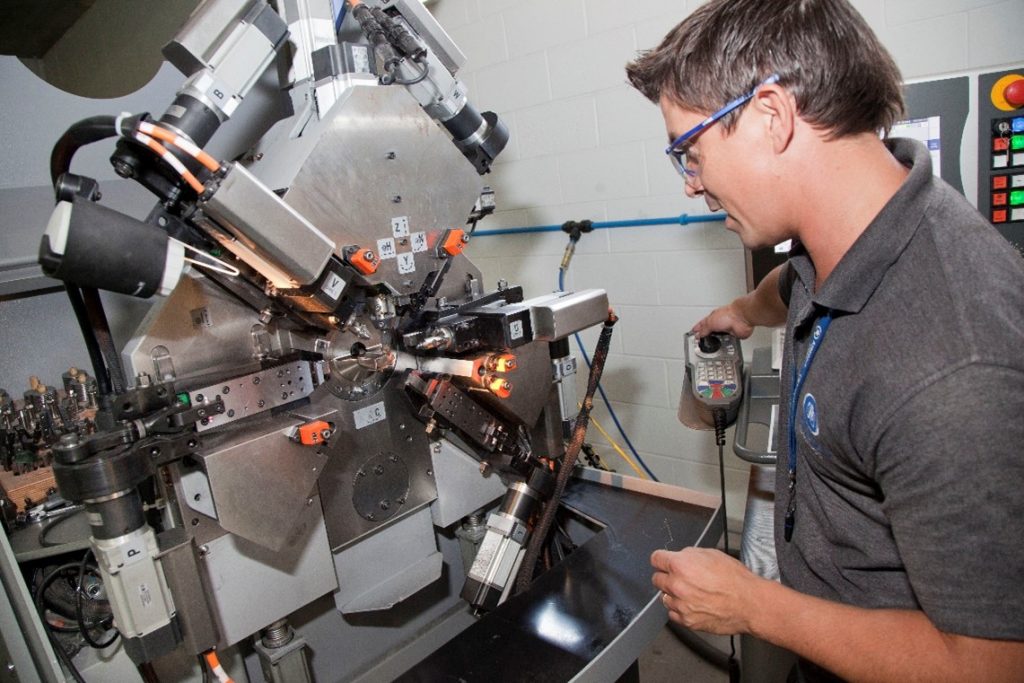If you’re interested in a career in engineering but are reluctant to embark on a three or four-year theoretical-centric university degree, you’re not alone. More and more people are beginning to realise that university isn’t the only route to a successful career in engineering. Although it might be the perfect choice for some people, a hands-on workplace focus on learning is far more appealing for those who enjoy learning through practical means. If this sounds like you, then an engineering apprenticeship could better suit your way of learning. As one of the UK’s leading spring manufacturers, Airedale Springs has nurtured and developed the skills and creativity of many apprentices, so we think we know a thing or two about the benefits of engineering apprenticeships. With that said, here’s everything you need to know about them.

What is an Engineering Apprenticeship?
Engineering Apprenticeships allow people to gain the knowledge, skills and experience they need to embark on a successful career in engineering through a combination of on-the-job training and classroom learning. The critical thing to remember with an apprenticeship is that you’ll be working and earning money in a paid role whilst simultaneously studying towards a professional apprentice qualification.
There are different levels of engineering apprenticeships, with programmes available for intermediate, advanced and higher levels of apprenticeships – so even if you have previous engineering experience, don’t rule out apprenticeships. Qualifications that can be gained by apprentices – amongst others – include BTEC Diplomas and NVQs. There are even degree level apprenticeships, allowing you to study and receive a university-level qualification whilst working simultaneously.
There’s a vast range of engineering apprenticeships available, from electrical and mechanical to manufacturing and civil engineering. Engineering apprenticeships are incredibly varied and appeal to a diverse range of people.

Learn Whilst You Earn
One of the key things that set apprenticeships apart from university degrees is earning money whilst you are working towards your qualification. For most people, going to university means struggling through years of being a penniless student and committing to thousands of pounds worth of student debt that will slowly be paid back through earnings once university is over – often for many, many years.
On the other hand, apprentices don’t end up saddled with mountains of debt and earn money whilst they study because they are classed as employees. An apprentice’s minimum hourly rate is lower than the national living wage, but you have to remember that this money is being earned before you are fully qualified.
Once fully qualified, apprentices can quickly go on to earn more in their first job as a qualified engineer than a lot of university graduates, and they don’t have to spend decades paying back their student loans.
Hands-On Experience
Many people get into engineering because they enjoy seeing tangible results from the work they’ve done. If sitting behind a desk isn’t how you thrive, then an engineering apprenticeship could be the solution. Apprenticeships are hands-on from day one, and whilst there will always be an element of classroom learning – the focus is on developing your workplace skills. Engineering often involves working with complex and intricate tools, materials and machinery. There’s no better way to gain an understanding of how it all works than by working with them, learning, and improving. As an apprentice, you’ll get to see how the job is done and then have a go at doing it yourself.

Getting a Foot in The Door
Pursuing an engineering apprenticeship can not only benefit your pocket and skillset but your long-term career goals. By working and learning on the job, you’ll naturally build a rapport with your employer that someone who is entirely classroom-based isn’t able to. This can lead to a smooth transition into full-time employment once qualified, as you may be offered a full-time position within the company you’ve completed your apprenticeship with.
Even if you decide that you don’t want to continue working for your apprenticeship employer, time spent working at the forefront of your chosen sector will provide you with invaluable networking opportunities and the chance to make key contacts in the industry. When it comes to climbing the career ladder, you’ll be leaps and bounds ahead of your university counterparts.
High Demand for Engineers
Engineers have always been – and likely always will be – in high demand. Technology, science, and manufacturing processes are constantly evolving and progressing – so whilst arts graduates find themselves competing for a handful of dwindling jobs, engineers are unlikely to face the same dilemma.
Engineering is a vital part of the UK economy regarding turnover, employment and inspiring the next generation. A significant proportion of Britain’s engineers come from overseas, and the UK’s departure from the EU is likely to have a lasting impact on the availability of engineers, leaving many roles waiting to be filled. Filling the demand for engineers can generate billions in revenue for the UK economy and apprenticeships are a massive part of ensuring the industry can meet the expected demand.

We hope this article answered all your questions about engineering apprenticeships. Here at Airedale Springs, we offer apprenticeships to many young people interested in a career in manufacturing engineering. We pride ourselves on providing bright, creative people with the opportunity to achieve their full potential whilst continuing their education. Our apprentices, the innovative skills and ideas they bring, are essential in our company’s long-term success and sustainability. If you’re interested in starting a career with Airedale Springs, one of the UK’s leading spring manufacturers, get in touch with us today to find out more.


